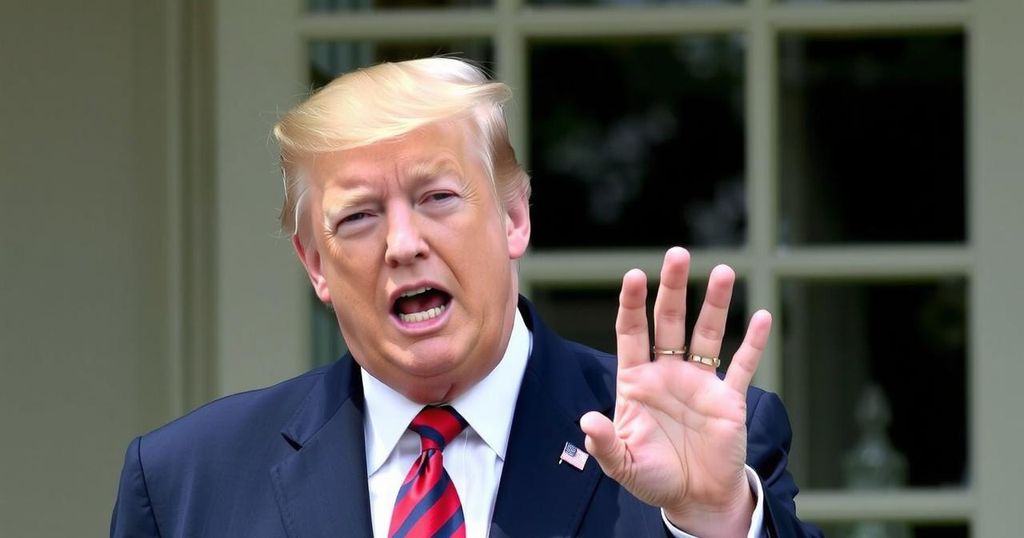Donald Trump plans to pardon January 6 rioters on his first day back in office should he be re-elected, claiming they have faced unjust treatment. He criticized the January 6 committee members, suggesting they should be jailed. In parallel, Trump called for an immediate ceasefire in Ukraine, emphasizing the need for negotiations due to the high casualty rates. His statements intertwine domestic political concerns with significant international issues.
In a recent interview on “Meet the Press,” former President Donald Trump stated that he intends to pardon individuals involved in the January 6 Capitol riots on his first day in office should he be re-elected. He criticized Liz Cheney and fellow members of the House committee investigating the incident, suggesting they “should go to jail,” though he clarified he would not instruct the Justice Department to pursue charges against them. Trump emphasized the harsh conditions faced by the rioters, describing their situation as “living in hell” and labelled the facilities housing them as unacceptable.
Additionally, Trump weighed in on international affairs during a diplomatic visit, calling for an immediate ceasefire in the Ukraine conflict, highlighting the toll on both Russian and Ukrainian lives. During discussions with European leaders, he expressed his belief that the war should not continue indefinitely and that negotiations should commence promptly. Furthermore, he commented on the recent developments in Syria, noting the changes in leadership and suggesting that Russia had lost interest in the region due to the ongoing war in Ukraine.
The focus of this article centers on Donald Trump’s recent statements regarding the January 6 Capitol riots and his plans should he return to the Oval Office. Trump’s controversial remarks about pardoning rioters underscore the ongoing repercussions of the Capitol attack, while his call for a ceasefire in Ukraine reflects his stance on current global conflicts. This article captures the intersection of domestic political implications and international diplomacy in Trump’s agenda, particularly amid his renewed visibility on the political stage. Trump’s historical impact on these issues remains a key point of contention within the American political landscape.
Overall, Trump’s assertions about pardoning the January 6 rioters and instigating ceasefire talks in Ukraine present a dual approach of addressing past grievances while also engaging with pressing global dynamics. His remarks about the January 6 committee members indicate a willingness to confront political adversaries, while his comments on international relations hint at a possible shift towards diplomatic resolution in conflicts involving major powers. This complex interplay of personal and international politics reflects the ongoing challenges and responses within the current socio-political climate.
Original Source: www.independent.co.uk






